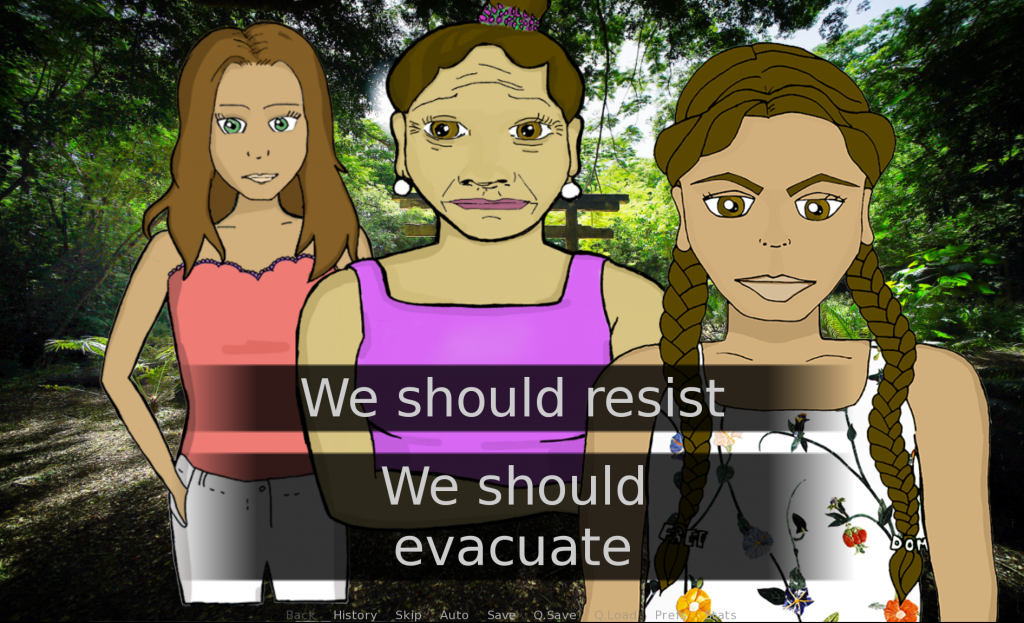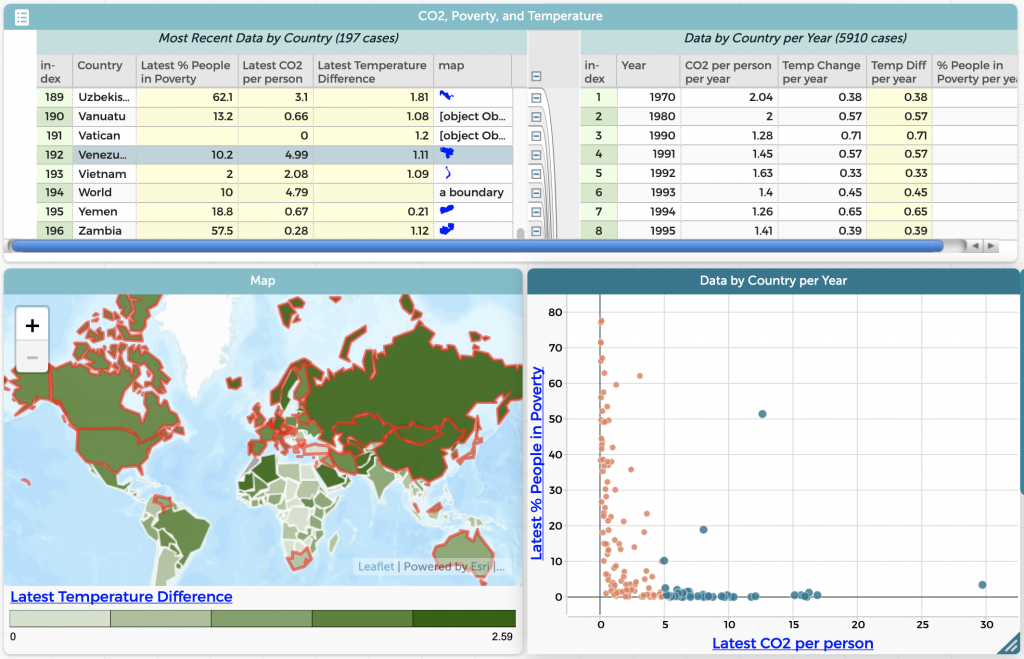Storied Computing

High schoolers explore a anti-colonial story while re-programming the game’s code. Guaiya Means Love is a storied computing game, or game design which invites players to re-make both story and code [4, 5].
We investigated important elements of learning and identity in this storied computing game context while volunteers played Guaiya in pairs. These included critical consciousness [1], identity positioning [5], mathematical resistance [6], and imagination [7].
Writing Data Stories

Middle schoolers transform large-scale datasets to tell their stories.
In our first two years, we collaborated with over 20 teachers to support middle schoolers across the state. Our research investigated curricular reorganization [2], signs of syncretism [3], and productive tensions in classroom design [8].
Citations
Selected Citations
Show More
[1] Ito, M., Roberto, C., & Wilkerson, M. (In Press). Critical consciousness, personal stories, and making choices as historical actors in an anti-colonial framed videogame. In The Berkeley McNair Research Journal.
[2] Lopez, M. L., Roberto, C., Rivero, E., Wilkerson, M., Bakal, M., & Gutiérrez, K. (Under Review). Curricular reorganization in the third space: a case of consequential reasoning around data.
[3] Lopez, M. L., Rivero, E., Roberto, C., Reigh, E., Wilkerson, M., Gutiérrez, K., Cortes, K., & Lanouette, K. (under review). Syncretism as generative epistemic dis-obedience: findings from working with nondominant youth to develop sociocritical data literacies. In Mind, Culture, and Activity.
[4] Roberto, C. & Davis, G. (2020). Reimagining narratives, rewriting code: computer science and math identity development in an anti-colonial video game. In Repository of American Educational Research Association conference.
[5] Roberto, C. (2020). Supporting critical CS identity in an anti-colonial Video Game. In Proceedings of the International Conference of the Learning Sciences.
[6] Roberto, C. (In Progress). Disciplinary resistance in a storied math game. In preparation to be submitted to Information and the Learning Sciences.
[7] Villacis, B. & Roberto, C. (In Progress). Shifts in imagination while becoming historical actors.
[8] Wilkerson, M., Roberto, C., Lanouette, K., Lopez, M. L., & Gutiérrez, K. (Under Review). Tensions in designing for critical computational data engagements.

Recent Comments